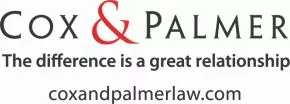Lewis v Sherrington, 2023 NSSC 53
Justice C LouAnn Chiasson
Subject matter: Child Support, Pretax corporate income, necessary medical expenses
The parties are divorced and share two children. Ms. Lewis applied to vary child support retroactively and prospectively. She sought an order imputing income to Mr. Sherrington for child support purposes.
Mr. Sherrington is the sole owner of an incorporated personal training business. His business suffered during the pandemic. The Court found that Mr. Sherrington's personal income did not fairly reflect all income available to him. In making this determination, the Court considered the fact that he was an award-winning personal trainer, that he was able to pay his sub-contractors annual salaries, and that he had previously agreed to establish his income as $87,000 in 2016 for the purpose of paying child support.
However, the Court found no evidence to support that pretax corporate income should be added to Mr. Sherrington's personal income. Averaging the pretax corporate income for Mr. Sherrington's business would have resulted in a reduction of his personal income. However, the Court held that his income should at least be equal to that of the sub-contractors he hires to work at his gym. An income of $60,000 was imputed to Mr. Sherrington. Mr. Sherrington owed retroactive support to Ms. Lewis on the basis of his imputed income at the table amount, as of the date that their child began living primarily with Ms. Lewis.
Mr. Sherrington sought a contribution from Ms. Lewis for orthodontic treatment for their youngest child. The Court found that the orthodontic expense was not proven to be necessary at the time Mr. Sherrington authorized the treatment and declined to order a sharing of the expense.
Mr. Sherrington claimed retroactive child support for their oldest child from November 2018 to April 2020. The court found that during this period, the child spent extended periods of time in inpatient treatment programs and with third parties. There was also evidence of a shared parenting schedule in this period. Thus, no retroactive support was owed to Mr. Sherrington.
Mielnik v Lumley, 2022 NSSC 386
Justice C LouAnn Chiasson
Subject matter: Child Support, Shared Parenting
The parties' child was in a shared parenting arrangement pursuant to a Consent Order. The issue before the court was child support. Ms. Mielnik sought full table support; Mr. Lumley's sought a set-off calculation.
Ms. Mielnik argued that it was not a shared parenting arrangement because Mr. Lumley's partner cared for the child when he was at work. The Court found that reliance on a third party to assist with childcare does not negate a shared parenting arrangement.
The court reviewed the respective household budgets, and persional situations of the parties. Ms. Mielnik remarried and shares a two-year-old child with her new spouse. Mr. Lumley began cohabiting with his fiancée who has a 10-year-old child that lives with them full time. The applicable table amount of child support payable by each party would be: $404 in the case of Mr. Lumley; and $363 in the case of Ms. Mielnik.
The Court ordered Mr. Lumley to pay $200 for a period of six months, $100 for six months, after which, the set off calculation would apply.
The content of this article is intended to provide a general guide to the subject matter. Specialist advice should be sought about your specific circumstances.



